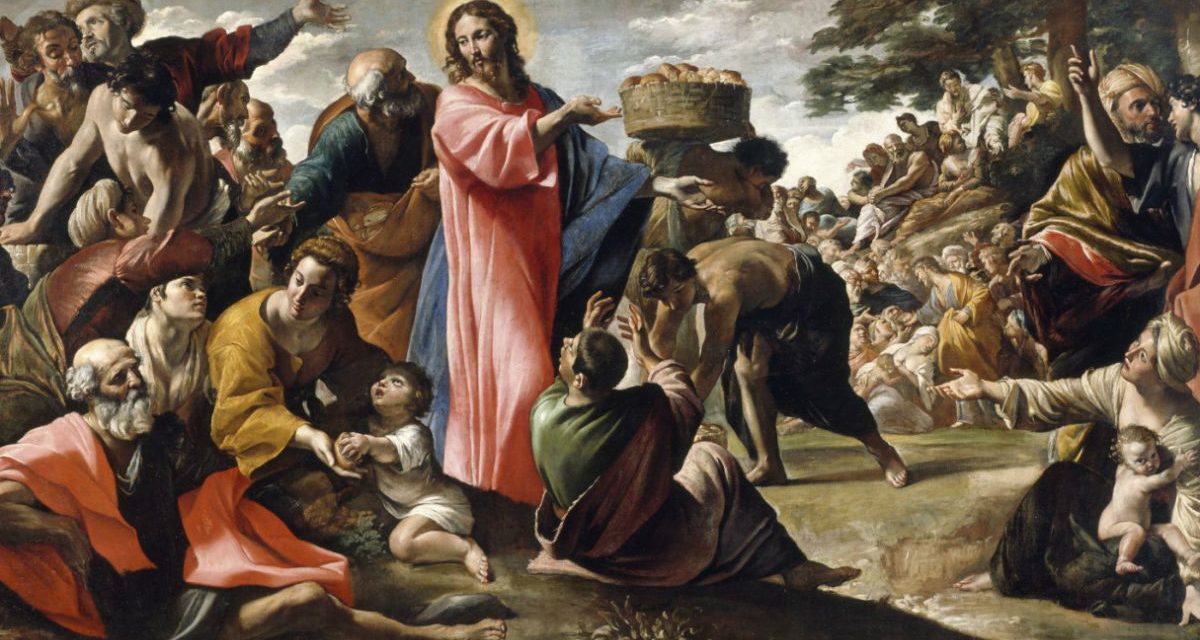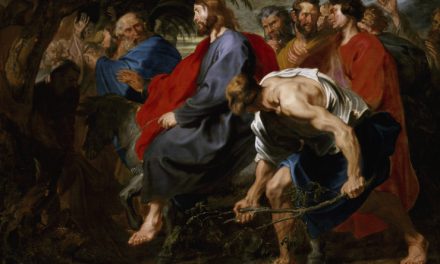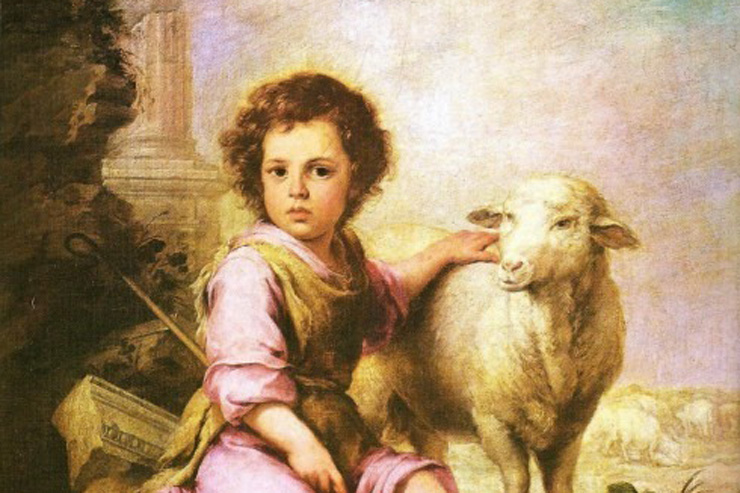“The Miracle of the Loaves and Fishes is the only miracle that is recorded in all four gospels and this certainly reflects the common experience of the early Christians in celebrating the Lord’s Day. So I invite you to pay close attention today and for the next four weeks as Jesus teaches us about the Eucharist, the source and summit of our Catholic faith.”
During this Liturgical Year (Year B), the gospel readings at Mass on Sundays are taken primarily from the Gospel of Mark. However, beginning this weekend, we will spend five consecutive Sundays hearing from the sixth chapter of the Gospel of John and the focus will be on the Eucharist.
To set the scene, we need to look back to last Sunday’s gospel from Mark. Jesus had previously sent out the apostles, two-by-two to preach the Good News and tend to the sick and possessed. And now they were back, anxious to let Jesus know how they fared. However, Jesus and His apostles were unable to find a quiet place to rest and discuss the news. They were confronted with a large crowd seeking Jesus because of the signs He had performed. Do you remember how Mark, in a sense of keen sadness, described the scene when Jesus looked upon the crowd? “… They were like sheep without a shepherd; and He began to teach them many things” (Mark 6:34).
It is at this very place that today’s passage from John’s gospel picks up. The crowd was huge, five thousand men plus women and children. They were far from home and hungry. Jesus saw their need and was moved to satisfy it. This is the scene and we will spend these four Sundays hearing about it.
The true shepherd, Jesus, had come to a people whose shepherds had failed them. They had been living in a great spiritual darkness. He would not fail them. What he would reveal to them would shock them. What He would give to them would not be what they expected or even wanted, but it would be what they needed. Many of his followers would not be able to accept His teaching and would leave Him. He would reveal to them the gift of Himself in the Eucharist to come, that very same Eucharist for which we are gathered today at the Holy Sacrifice of the Mass.
Over the course of these five Sundays, we will see the miracle of the feeding of the five thousand from five barley loaves and two fish. We will hear of the manna from Heaven given to the Israelites through His prophet Moses. We will hear that Jesus identifies Himself as the true Bread from Heaven. We will learn that this bread is His own flesh and blood to be received by us for our salvation and life.
These are important truths that are at the very center of our faith. And Jesus begins to reveal them by performing the miracle of the multiplication of the loaves and fish… a miracle that satisfies a material hunger of the five thousand while preparing them to understand the nature of the grace to come that would satisfy their spiritual hunger too.
Jesus Did Multiply the Loaves and Fish
We are all familiar with this miracle. A great crowd needs to be fed but there is nowhere near sufficient food available to do this. Andrew brings a small boy to Jesus who offers his five barley loaves and two fish. How could this inadequate offering help? Jesus takes the offering, blesses it, gives thanks and distributes it to the multitude. As we know, everyone ate their fill and afterwards, twelve baskets were filled with loaves that were left over.
Just as we are all familiar with the story of the miracle, I am sure that many of us have heard it said, perhaps even during a homily, that Jesus did not miraculously multiply the loaves and fish; instead we may have been told that the real miracle was that Jesus inspired the crowd to share what they had with one another. But I want to tell you that while this miracle indeed inspires faith, the miraculous multiplication was real and not a story about sharing.
- First, the general context does not support simply a sharing of food. There is real concern expressed about insufficient provisions.
- Second, the miracle produced so much food that twelve baskets were filled with loaves that the people were unable to eat.
- Third, the text states that Jesus distributed the five loaves and two fish. That is the object of what was both eaten and that remained.
- Fourth, nowhere in the text is any mention made of Jesus asking or inspiring people to share with one another.
- Fifth, while a story about sharing would have been nice, it would miss the point of the miracle which sets the scene for the important instruction concerning the Eucharist.
From the accounts of this miracle in the four gospels, we know that Jesus first taught the gathered people through His preaching. We then learn that He had them recline—as they would at the Passover meal, the setting of the Lord’s Supper. He took the meager offerings, blessed them, gave thanks, broke them and distributed them. And afterwards, He had all the fragments of what remained collected. Does this all sound familiar? No, I don’t mean familiar in the sense that we have read the gospels… I am speaking about our familiarity of experience… what we experience at Holy Mass.
The abundance produced by the miracle (twelve baskets left over) was produced by God, not by man. Our inadequate offerings, represented by the five loaves and two fish, are important, but it is God who produces the abundance. And in the same way, by our worthy participation in Holy Mass, in faith and trust, we offer what little we have to God, however inadequate, and He in turn gives us grace and life in abundance through the Eucharist.
To drive home this connection, note that John 6:11 says that Jesus gave thanks. The transliteration of the underlying Greek word for gave thanks is eucharisteō, from which we derive Eucharist.
The Miracle of the Loaves and Fishes is the only miracle that is recorded in all four gospels and this certainly reflects the common experience of the early Christians in celebrating the Lord’s Day. So I invite you to pay close attention today and for the next four weeks as Jesus teaches us about the Eucharist, the source and summit of our Catholic faith.
Into the deep…
The scripture readings during Holy Mass for the Seventeenth Sunday in Ordinary Tine (Year B) are Second Kings 4:42-44 | Psalms 145:10-11, 15-16, 17-18 | Ephesians 4:1-6; | John 6:1-15.
Image credit: Giovanni Lanfranco, Public domain, via Wikimedia Commons
Please help spread the Gospel. Share Deacon Bickerstaff’s article with family and friends on Facebook and other social media.
We are grateful for your support…
We welcome both one-time and monthly donations. A monthly subscriber giving just $10 a month will help cover the cost of operating Integrated Catholic Life for one day! Please help us bring enriching and inspiring Catholic content to readers around the world by giving today. Thank you and may God Bless you for supporting the work of Integrated Catholic Life!














